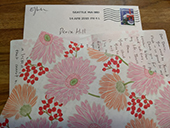 Last month, DM O’Connor reviewed EJ Koh’s collection of poems Lesser Love. In addition to being selected winner of the Pleiades Press Editors Prize for Poetry in 2017, O’Connor offers this praise: “It is clear that each page stands alone as an example of true contemporary poetry. It is clear you should buy this book, memorize all the poems, then give it to a friend who need to be affirmed that poetry is far from dead.”
Last month, DM O’Connor reviewed EJ Koh’s collection of poems Lesser Love. In addition to being selected winner of the Pleiades Press Editors Prize for Poetry in 2017, O’Connor offers this praise: “It is clear that each page stands alone as an example of true contemporary poetry. It is clear you should buy this book, memorize all the poems, then give it to a friend who need to be affirmed that poetry is far from dead.”
At the close of the review, O’Connor notes that Koh will even write love letters to her readers, just for the asking. Intrigued, I visited her website, where she states, “I am writing a thousand love letters to strangers by hand.”
Her July 26, 2016 blog post entitled, “It’s Okay, I Love You” explains how she came to this task, beginning the entry with:
“The past nine months, my life has become unrecognizable. When I say this out loud, it means who I am is unrecognizable. But I now see myself for the first time.
“In February, I hoped to write again; beginning was also deciding. I’d once said, ‘I’m sick of writing because I’m sick of myself.’ To be kinder towards my person, I didn’t go back to that place. On a Friday evening, I was pressed for new perspective. I decided to handwrite a thousand love letters.”
She goes on to explain why the handwriting, why the love – which seems it needs less explaining in our current world that feels imbued with endless hate.
So, I wrote to EJ. I sent her an e-mail, including some details about myself, as she requests, “& add a struggle,” which I did. A couple weeks later, I received a hand-addressed envelope postmarked from Seattle. By then, I had forgotten about my request, and didn’t know EJ was on the west coast, so I was pleasantly surprised to open the envelope and find a two-page, handwritten “love letter.” Mine was numbered 62, and included thoughtful commentary and insight gleaned from information I had shared with her, including my struggle.
A love letter? If love means reaching out to a total stranger, to recognize the work they do, what they care about and what they are struggling with; to treat someone with concern and care and affirmation; to not judge and to just be kind and share in someone’s perspective with seriousness and some humor – then yes. This was the best love letter I’ve ever received.
What a difference writers can make in another person’s life. And all it takes is who we are and what we have, shared with another. So simple, so (nearly) free, and yet – so profound.
My thanks to EJ. I hope others who share in this experience have as great an appreciation. May we all “promise to notice our light every day.”
 The Spring 2018 issue of The Bellingham Review features winners of their annual contests:
The Spring 2018 issue of The Bellingham Review features winners of their annual contests:
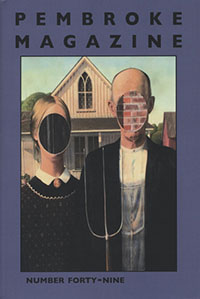
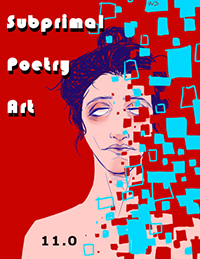
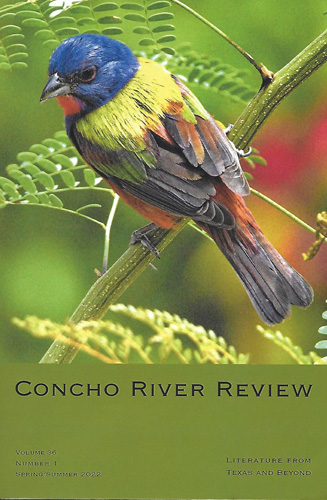
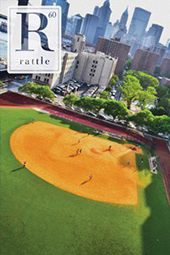 In addition to its regular content of poetry, the Summer 2018 issue of
In addition to its regular content of poetry, the Summer 2018 issue of 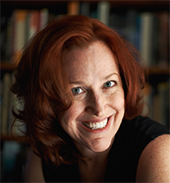
 The Ralph Gustafson Prize for Best Poem Winner
The Ralph Gustafson Prize for Best Poem Winner In addition to its twice-a-year print publication of fiction, nonfiction, poetry, reviews, translations and now plays-in-progress,
In addition to its twice-a-year print publication of fiction, nonfiction, poetry, reviews, translations and now plays-in-progress, 
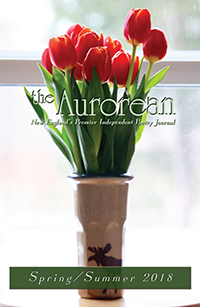
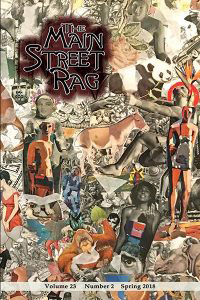
 The Kenyon Review
The Kenyon Review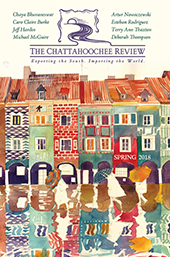 Winner for Fiction
Winner for Fiction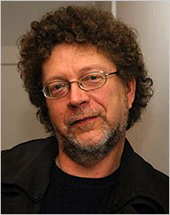 Brevity: A Journal of Concise Literary Nonfiction
Brevity: A Journal of Concise Literary Nonfiction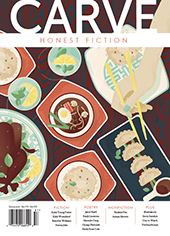 FICTION
FICTION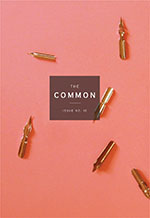 The Common
The Common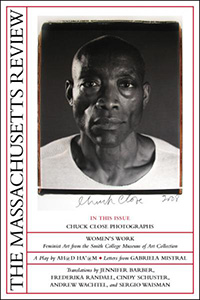
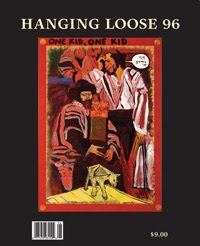
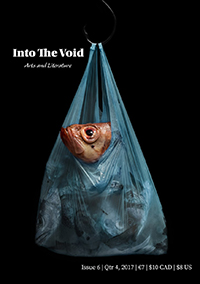
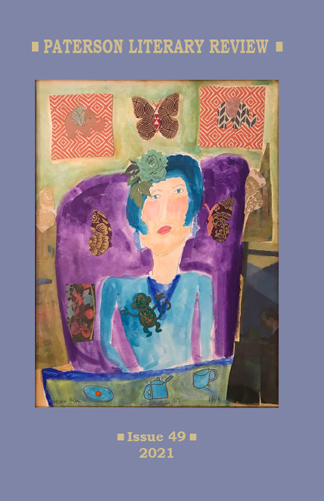 First Prize
First Prize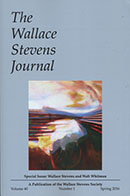 In addition to poetry and book reviews, the Spring 2018 issue of
In addition to poetry and book reviews, the Spring 2018 issue of  The Spring 2018 issue of
The Spring 2018 issue of 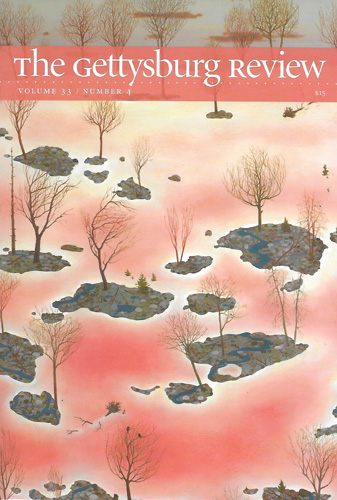
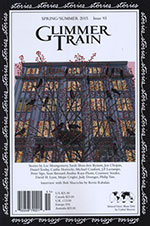

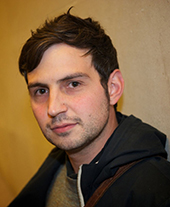 “If a poem works it’s because you’ve made it such that other people might participate in making it meaningful, and this participation will always rest on another person’s understanding of the poem and its relationship to a world that is not your own. Your own understanding of the poem will evolve over time too, as you reread it in light of your changing world, just as you will find the world altered in light of the poem you wrote to understand a small uncertain corner of it. With poems, you never get to settle on a final meaning for your work, just as you never get to feel settled, finally, as yourself.”
“If a poem works it’s because you’ve made it such that other people might participate in making it meaningful, and this participation will always rest on another person’s understanding of the poem and its relationship to a world that is not your own. Your own understanding of the poem will evolve over time too, as you reread it in light of your changing world, just as you will find the world altered in light of the poem you wrote to understand a small uncertain corner of it. With poems, you never get to settle on a final meaning for your work, just as you never get to feel settled, finally, as yourself.” Last month, DM O’Connor reviewed EJ Koh’s collection of poems
Last month, DM O’Connor reviewed EJ Koh’s collection of poems 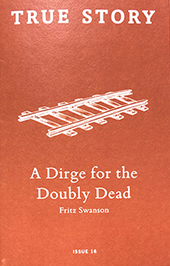 From the creators of
From the creators of 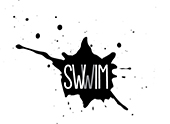 What better way to usher in summer than to introduce
What better way to usher in summer than to introduce 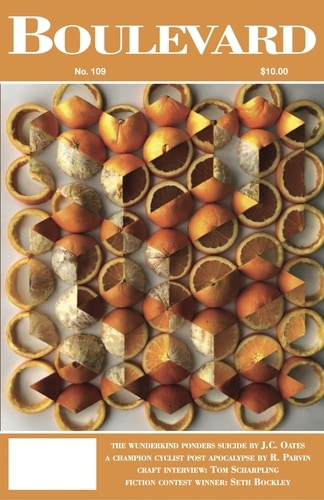 Three poems by Elizabeth Hoover, winner of the
Three poems by Elizabeth Hoover, winner of the 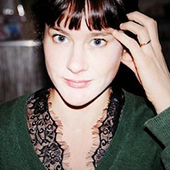 The Greensboro Review
The Greensboro Review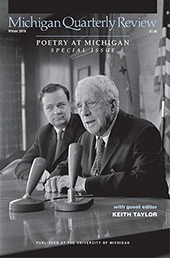 The most recent issue of
The most recent issue of